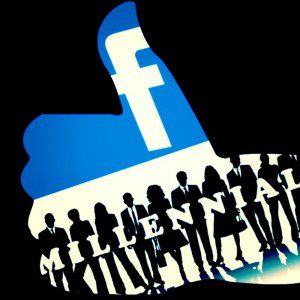 Growing up in a world full of technological advances, millennials (ages 13-29) consider social media to be an integral part of their lives. More than half the number of Facebook users in the United States are between the ages of 18 and 29, making this generation a prime public for organizations wanting to build online relationships with stakeholders.
Growing up in a world full of technological advances, millennials (ages 13-29) consider social media to be an integral part of their lives. More than half the number of Facebook users in the United States are between the ages of 18 and 29, making this generation a prime public for organizations wanting to build online relationships with stakeholders.
While millennials are willing to network with organizations on Facebook, a study featured in The Journal of Social Media in Society shows they are particular about who they interact and engage with, as well as why and how.
Based on qualitative and quantitative research, the study, which is summarized on the IPR Social Media and Media Research Center site, includes several key findings about motivators, influencers, and deal breakers. The results suggest a “what can you do for me” attitude among members of the generation.
Incentives, such as discounts or contests, are big motivators for millennial interaction. Generally, they would rather “like” a page than become “friends” with an organization because they’d prefer their personal profile to remain private. Influenced by peers, they’re more inclined to “like” a sorority, fraternity, nonprofit or sports team than a corporation. They will also have no problem terminating the relationship if they feel bombarded by updates or lose interest in the group.
Organizational use of social media to build relationships with stakeholders is increasingly seen as a necessity. To get the most out of Facebook, organizations need to be authentic, transparent and savvy with how they engage with users. Aiming for reciprocity, they need to encourage audience members to participate in conversations. To figure out what type of dialogue best promotes engagement, further research needs to be conducted.
McCorkindale, Tina M.; DiStaso, Marcia W.; & Fussell Sisco, Hilary (2013). How Millennials are engaging and building relationships with organizations on Facebook. The Journal of Social Media in Society, 2(1), 67-87.
Alyssa Hubbell is a Public Relations Associate at the Institute for Public Relations




First, a “ball caps off” to Alyssa Hubbell for a fine summary of the 2013 article by Tina McCorkindale, Marcia DiStaso & Hilary Fussell Sisco, Hilary (2013).
The article is tremendously important in terms of providing a ranking of “likes,” the value of privacy in interactions with organizations, and an annoyance with efforts to “over-communicate” through social media.
Moreover, this and prior research calls to mind a number of other valuable points, tips and suggestions including the following:
* The ultimate “decider” in reference to social media is the user, not the page designer. This sometimes seems to be forgotten in creating a social media message environment.
* Good design standards must be followed in that pages need to be uncluttered, with white space that allows he message to “breathe,” and adherence to the design principles of other media.
* Making the audience member do the work of clearing intrusive messages is annoying, lacking in consideration of the user, and a practice that drives users to leave, rather than encouraging them to become involved.
* Target the users’ needs in seeking and using information, not simply the needs of the designer’s client.
* Make the message easy to find and easy to read; borrow from advertising and make a promise in the lead, followed by making good on that promise in the body of the message.
* Write more better. We’ve known what good writing is for more than 150 years, yet we still see twisted syntax, vague references and a plethora of sentence fragments, misspellings and grammar errors with regard to social media.
Keep in mind that today the strategy is not publicity, it is the delivery of information to those predisposed to an interest in that information, a means of accessing the information, and the capability to use the information to reach a goal, help solve a problem or deliver a service.
A really fine article and summary. Thanks for providing a mechanism for reacting and response.
Thanks, Bill for the catch. We are updating it now. Best, Tina
Thanks, Bill, for the sharp eye. We’re looking into this issue right now.
The U.S. Census says that there are currently 316,675,000 people in the country. Your article states that millennials make up half of Facebook’s 900,000,000 U.S. users. Facebook says they have 133,000,000 million U.S. users total so it seems that your numbers are off significantly.